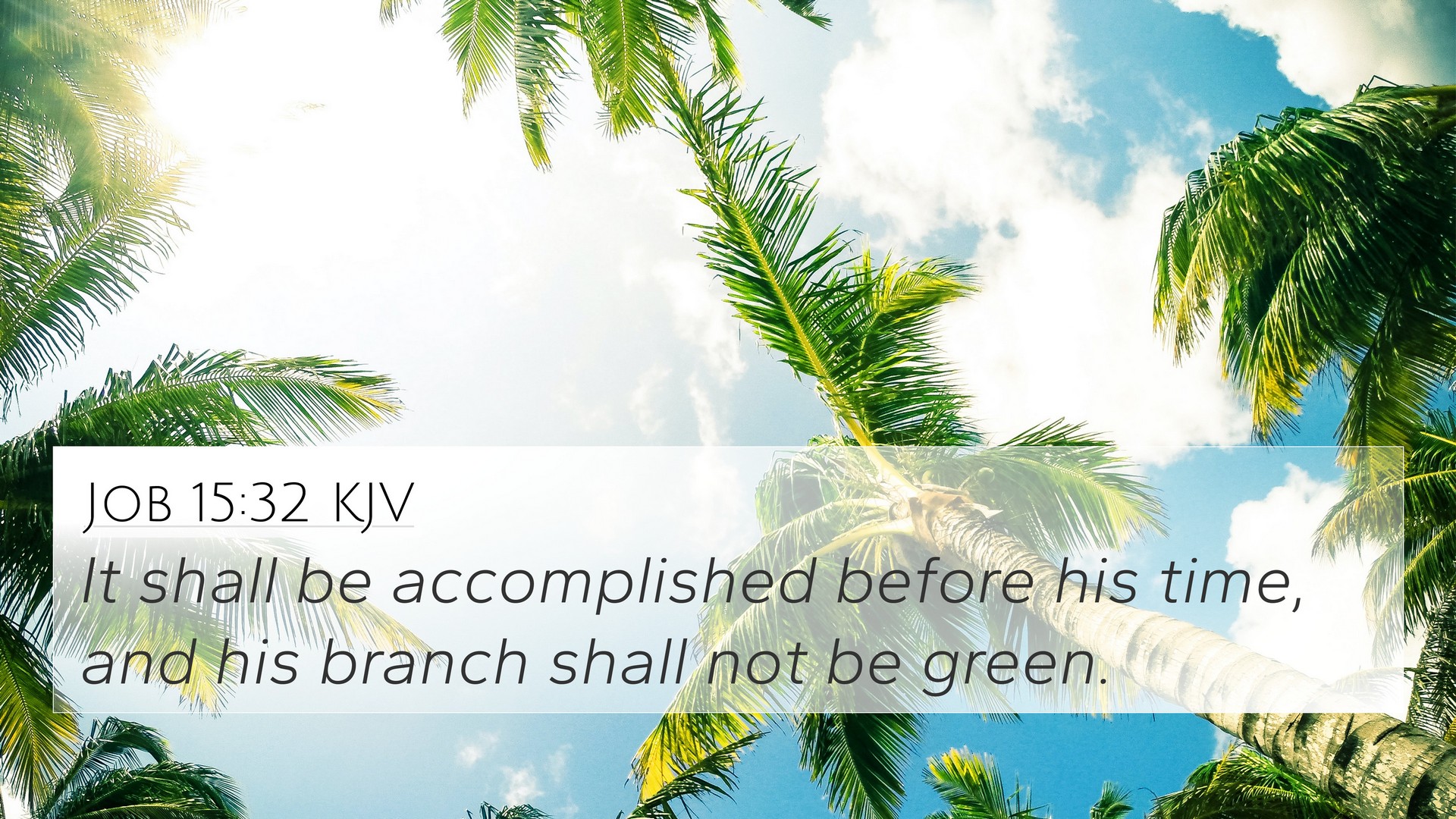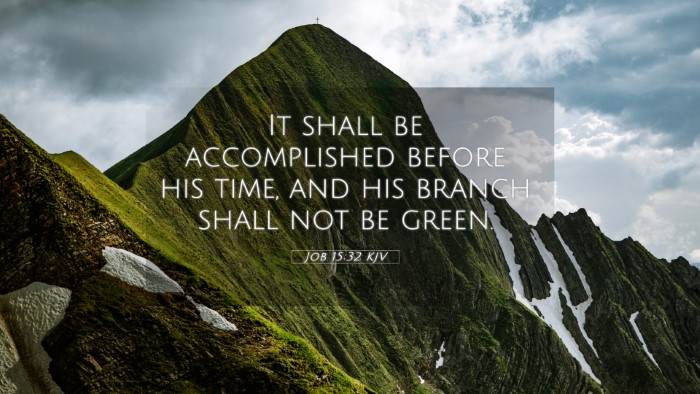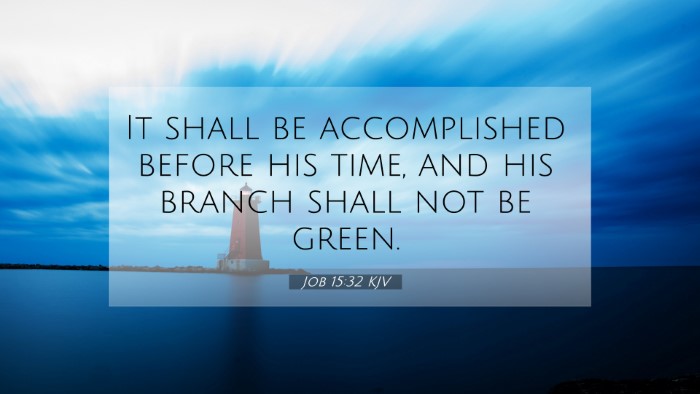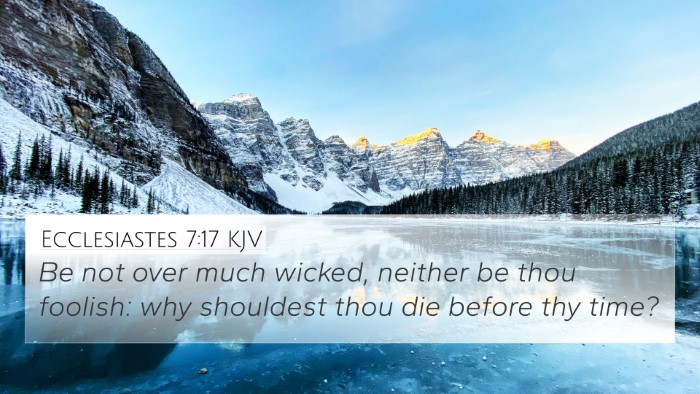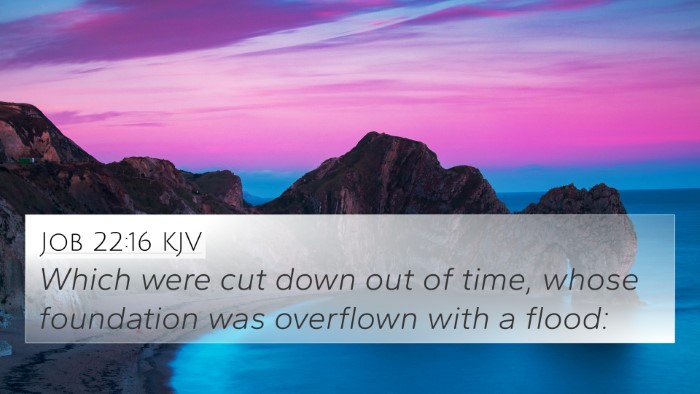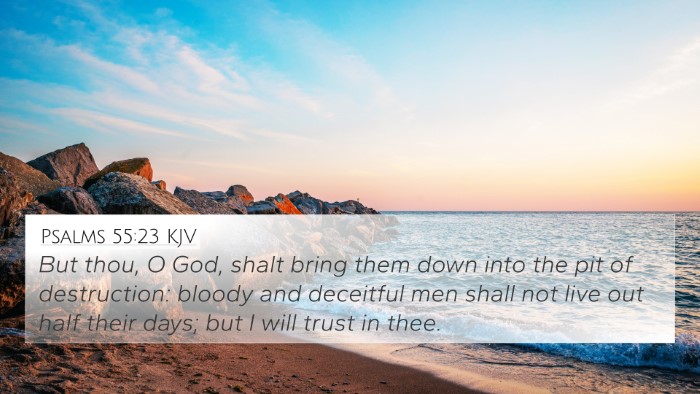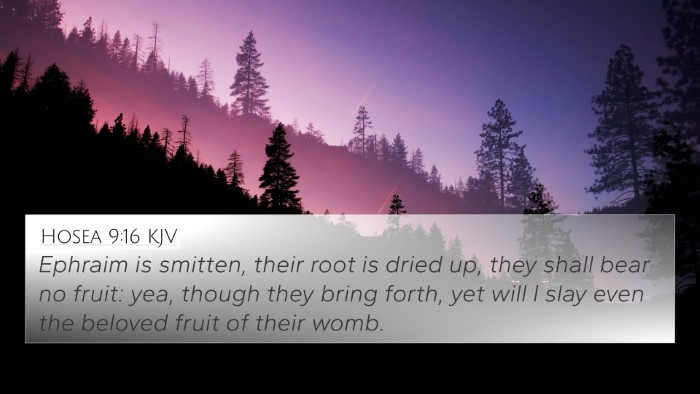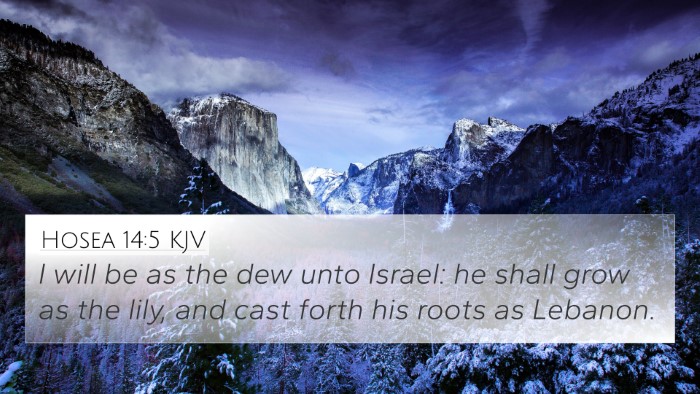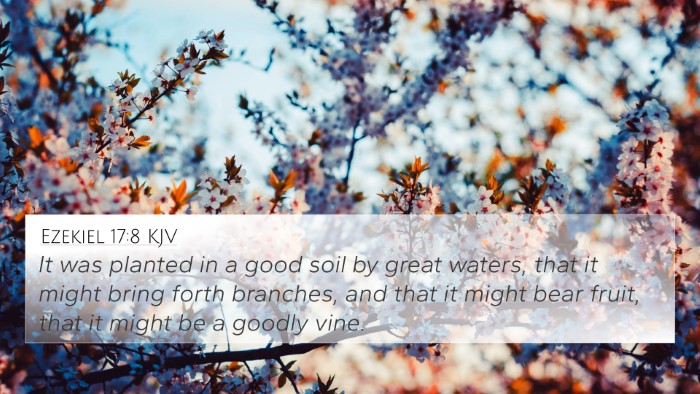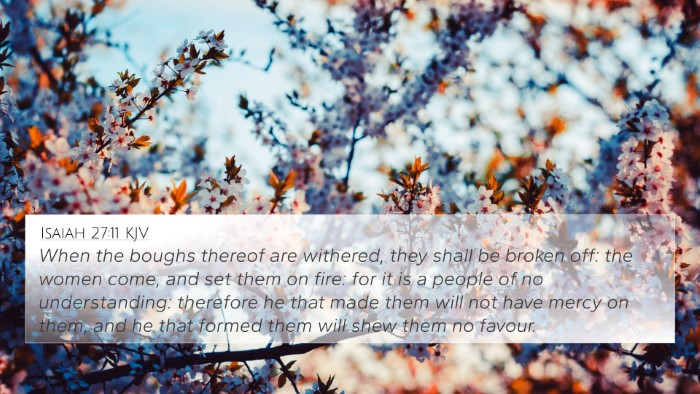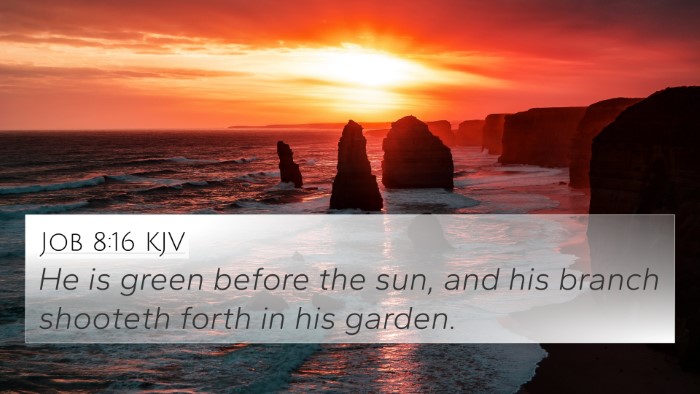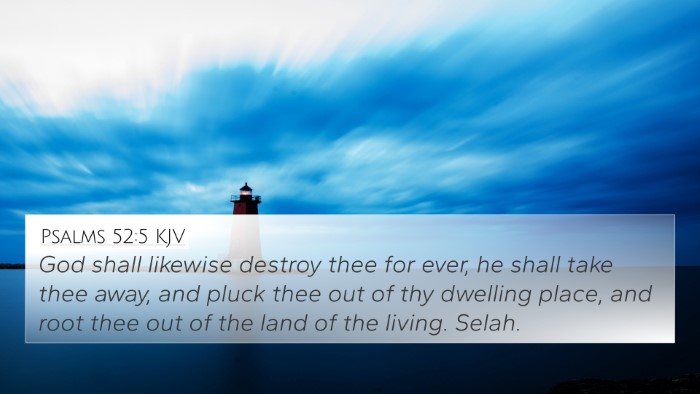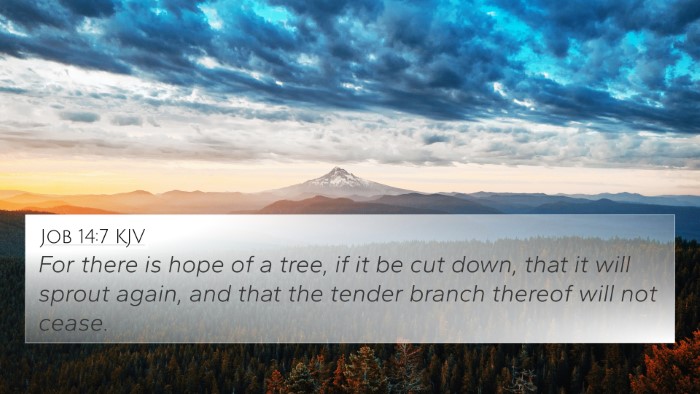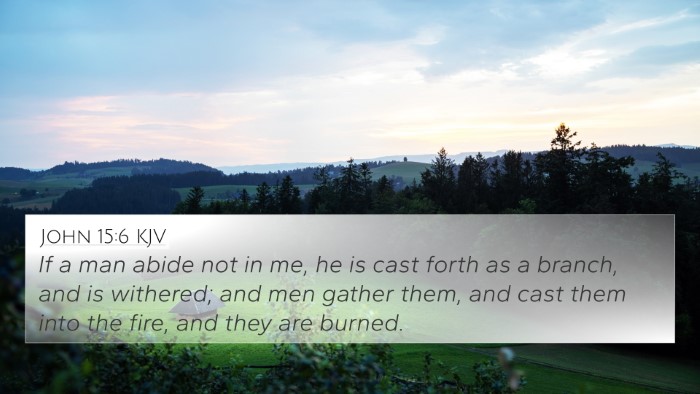Understanding Job 15:32
Job 15:32 states: "It shall be accomplished before his time, and his branch shall not be green." This verse, found in the discourse of Eliphaz the Temanite, offers profound insights into the nature of the fate of the wicked and the divine justice that underlies their downfall.
Context of Job 15:32
Eliphaz argues against Job, emphasizing the certainty of retribution. His meditation on divine justice leads him to illustrate the transient and ultimately doomed state of the wicked. By examining this verse, we can garner an understanding of how the themes of suffering, divine retribution, and the fleeting prosperity of sinners are woven throughout Scripture.
Commentary Insights
Insights from Matthew Henry
Matthew Henry suggests that this verse speaks to the inevitability of divine judgment. He emphasizes the metaphor of the "branch" being green, which symbolizes life and prosperity. However, when disconnected from the divine source, this vitality quickly withers. This critiques the false security of those who engage in wickedness, promoting the idea that prosperity without righteousness leads to destruction.
Insights from Albert Barnes
Albert Barnes interprets the phrase “before his time” as a divine ordinance that is set against the wicked. His analysis reinforces the notion that God's timetable is not aligned with human expectations. Barnes emphasizes the imagery of a "branch" as indicative of the wicked’s premature demise, illustrating the ultimate futility of opposing God's will.
Insights from Adam Clarke
Adam Clarke recognizes the harshness of Eliphaz's reasoning but notes that it highlights the certainty of God's justice. He further elaborates that the "branch" signifies not just prosperity, but also an insincere life devoid of godliness. Clarke aligns this verse’s message with the interactions between righteousness and divine blessing — a recurring theme throughout the Bible.
Bible Verse Cross-References
- Psalms 1:4-6: The way of the wicked is like chaff that the wind blows away.
- Psalms 37:2: For they will soon fade like the grass and wither like green herbs.
- Proverbs 10:27: The fear of the Lord adds length to life, but the years of the wicked are cut short.
- Isaiah 46:12: Listen to me, you stubborn-hearted, you who are now far from my righteousness.
- Jeremiah 17:8: They will be like a tree planted by the water that sends out its roots by the stream.
- Matthew 7:19: Every tree that does not bear good fruit is cut down and thrown into the fire.
- John 15:6: If anyone does not abide in Me, he is cast out as a branch and is withered.
Connections between Bible Verses
This verse forms part of the larger narrative in the Book of Job, which routinely explores the themes of suffering and the reasons behind it. Job’s experiences serve as a focal point around which discussions of righteousness and justice revolve, echoing sentiments found in the Psalms and Proverbs.
Thematic Bible Verse Connections
The themes presented in Job 15:32 resonate with various scriptural elements, particularly highlighting the dichotomy between the righteous and the unrighteous. This duality is pivotal in understanding God's character and intentions toward humanity.
Bible Cross-Reference Guide
When analyzing Job 15:32, it’s essential to examine the broader context of divine retribution found throughout the Scriptures. This approach includes:
- Exploring Job's earlier dialogues, which set the stage for Eliphaz's condemnation.
- Consulting the Psalms for reflections on the fleeting nature of the wicked.
- Linking to New Testament teachings that reinforce the message of accountability, such as in Matthew 7:19.
Conclusion
Job 15:32 serves as a profound reminder of the ultimate justice that governs the universe. It warns against the delusions of temporary success experienced by the wicked, while simultaneously offering assurance of God’s unerring righteousness. The exploration of this verse necessitates a comprehensive tool for Bible cross-referencing, allowing seekers to engage with related scriptures deeply and meaningfully.
